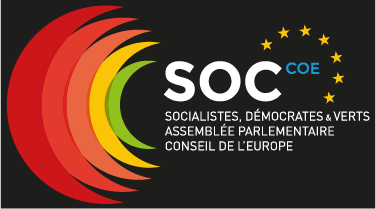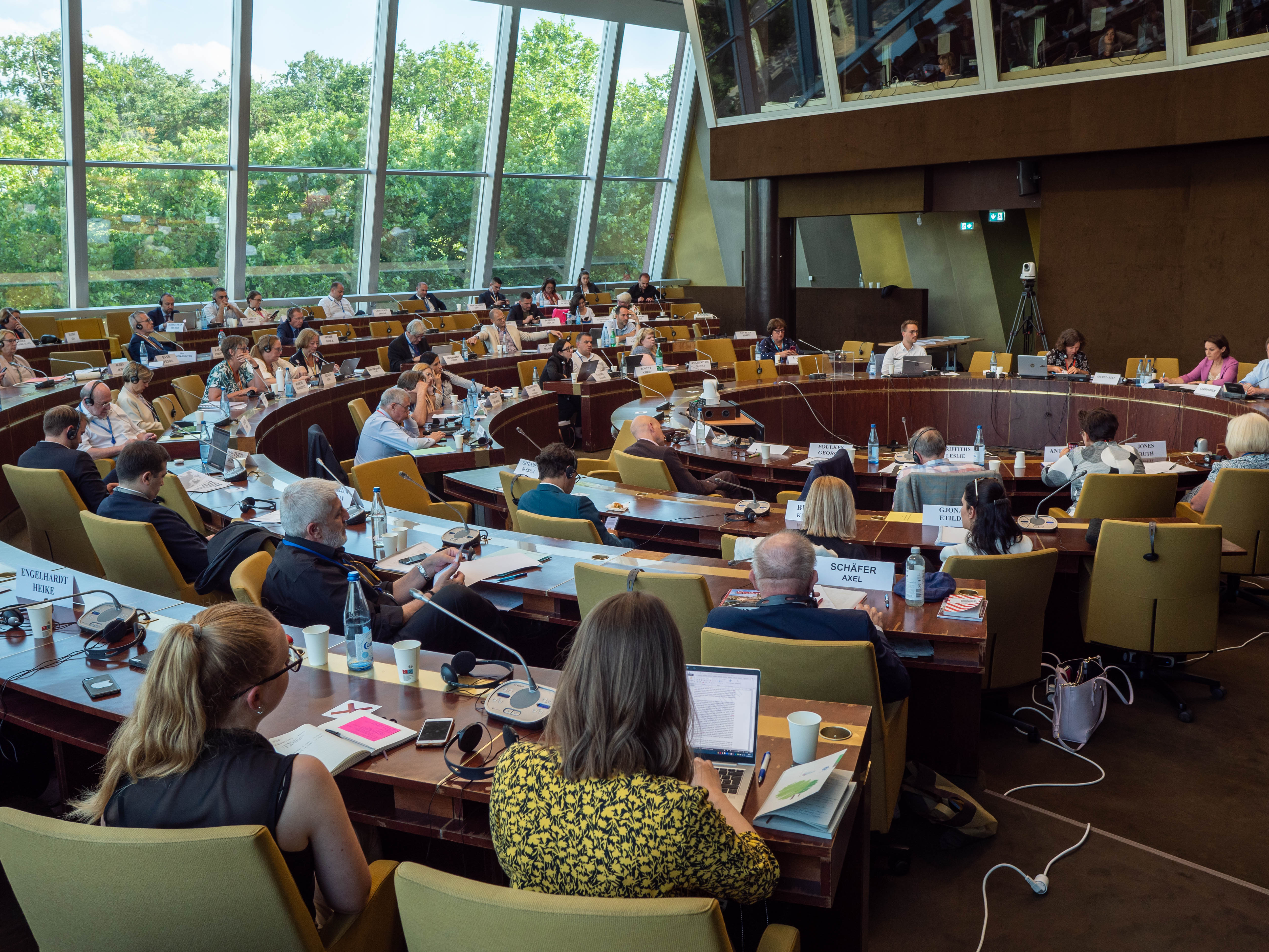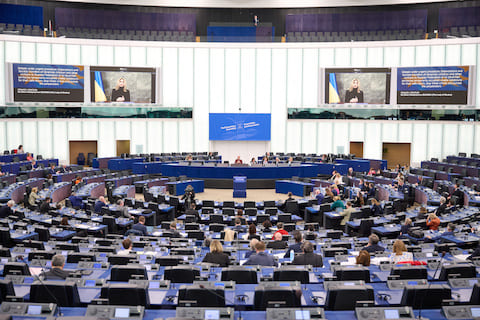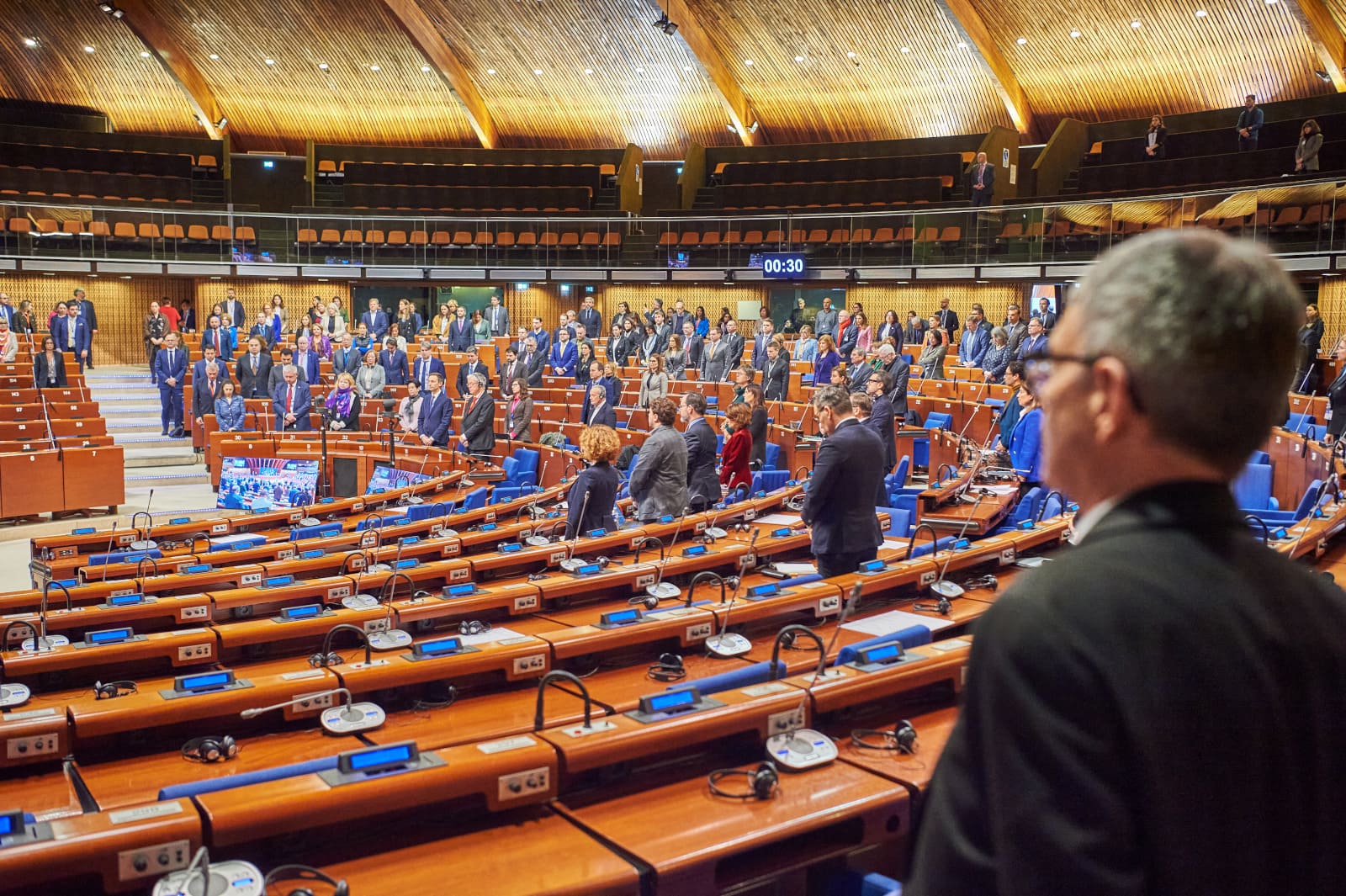
PACE Spring Session 2022 --- 25-28 April 2022 --- SOC NEWSLETTER
Tweet
Tuesday 26 April
Beyond the Lisbon Treaty: strengthening the strategic partnership between the Council of Europe and the European Union
The Assembly discussed the positive role that political and technical dialogue have played in avoiding duplications on competencies and diverging standards between the EU and the Council of Europe, particularly following the entry into force of the Lisbon Treaty. The report presented by Titus Corlăţean (SOC) stressed the importance of the resumption in 2020 of the negotiations on the EU’s accession to the European Convention on Human Rights and called for this process to be pursued in order to guarantee coherence and consistency between EU law and lead to a single legal space in which also the EU is subjected to the European Convention on Human Rights.
Tackling discrimination based on social origin
The report presented by our 1st Vice-president Selin Sayek Böke (SOC) sought to identify economic and legislative policies aimed at tackling income inequalities, social exclusion, and class pay gaps resulting from discrimination based on social origin. The Assembly supported the report and highlighted the need to promote social mobility, provide access to free, equitable, and quality education, and establish merit-based mechanisms in order to protect the fabric of our societies and the quality of our democratic institutions. The SOC Group expressed its support for the report, and stressed the need to look into transversal issues such as social housing and discrimination conducted by artificial intelligence and logarithms.
Wednesday 27 April
General policy debate “Consequences of the Russian Federation's continued aggression against Ukraine: role and response of the Council of Europe”
The Assembly started the debate by recalling the actions undertaken to exclude the Russian Federation from the Council of Europe and discussed the next steps to adopt in order to rebuild both the Organisation and Europe as a whole. The members stressed the need to increase support to Ukraine in its efforts to strengthen the protection of its territory, as well as how to support the effective investigation and prosecution of war crimes in Ukraine. The members also voiced the need to include Russian and Belarusian civil society in the activities of the Organisation.
During the SOC Group meeting, we had a debate about the best manner to put an end to this war, between pacific actions and armed support. In the plenary, the SOC Group expressed its support for the report prepared by Frank Schwabe (SOC), our President, and called on all members to show the same unanimity and solidarity demonstrated in the aftermath of the aggression of the Russian Federation on Ukraine on 24 February.
Fighting and preventing excessive and unjustified use of force by law enforcement officers
The Assembly discussed the report prepared by Oleksandr Merezhko (EC/DA) concerning the excessive and unjustified use of force by enforcement officers. The report spoke about the need to adopt a binding legal instrument to tackle the excessive use of force by police and law enforcement officers in the member states of the Council of Europe, and cited several episodes taking place in European countries such as the violent suppression of peaceful protest and pushbacks against migrants by border control police.
The Assembly also discussed the possibility to allow national anti-torture mechanisms and other relevant national human rights institutions to monitor the use of force by law enforcement officers in order to ensure accountability over such incidents and prevent them. The SOC Group expressed its support for the report and stressed the need to address racism among police officers through ad hoc awareness training.
Thursday 28 April
Debate under urgent procedure “The Russian Federation’s aggression against Ukraine: ensuring accountability for serious violations of international humanitarian law and other international crimes”
The Assembly followed up on the General Policy debate held on Wednesday concerning the Russian Federation’s aggression in Ukraine, and discussed how to ensure accountability for war crimes and other violations of international humanitarian law through concrete measures. The report prepared by Aleksander Pociej (EPP/CD) focused on concrete measures to investigate these violations and persecute the perpetrators of war crimes, crimes against humanity and possible genocide in Ukraine, including how to overcome the obstacles posed by the presence of the Russian Federation on the UN Security Council in the activities of the ICC. The main idea advanced by the report concerned the creation of an ad hoc tribunal for the investigation of such crimes by way of a multilateral treaty between like-minded countries, which would be endorsed by a resolution of the UNGA.
The SOC Group expressed its support for the report, while highlighting the need for further work by the Committee on Legal Affairs and Human Rights concerning the legal questions in the report. The SOC Group also stressed the need to fight against the impunity of the Russian Federation both through national jurisdiction and support to the ICC.
Safeguarding and promoting genuine democracy in Europe
The Assembly discussed the proposals advanced by the report presented by Marie-Christine Dalloz (EPP/CD) to respond to the crisis of citizens’ confidence in democratic institutions and address the warning signs of democratic decline in Europe, such as the weakening of the role of the parliamentary opposition, attacks on the independence of the judiciary and the media, and attacks on fundamental rights and freedoms.
Concrete proposals discussed by the Assembly included fighting against disinformation, protecting journalists, avoiding a strong concentration of media ownership, ensuring free and fair elections, ensuring government accountability by empowering the opposition, and providing protection against discrimination. The SOC Group expressed its support for the report and stressed the need to reduce the distance between the citizens and decision-makers.





